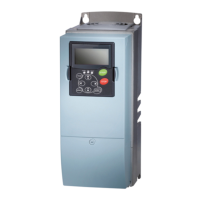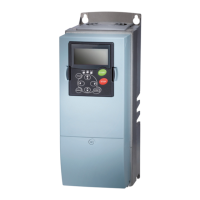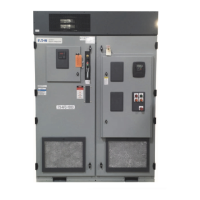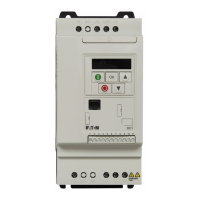SLX9000 Adjustable Frequency Drives User Manual
MN04003020E
For more information visit: www.eaton.com 5-11
January 2009
Keypad Reference
The keypad reference submenu (R3.2) displays and allows the operator to edit the frequency
reference. The changes will take place immediately. This reference value will not, however,
influence the rotation speed of the motor unless the keypad has been selected as the active
control place.
Note: The maximum difference between the output frequency and the keypad reference is
6 Hz. The program automatically monitors the keypad reference value.
You may edit the reference value (pressing the ENTER button is not necessary). See
Figure 5-6.
Keypad Direction
The keypad direction submenu displays and allows the operator to change the rotating
direction of the motor. This setting will not, however, influence the rotation direction of the
motor unless the keypad has been selected as the active control place.
Note: See Table 5-6 for how to change the rotation direction.
STOP Button Activated
By default, pushing the STOP button will always stop the motor regardless of the selected
control place. You can disable this function by giving parameter 3.4 the value 0. If the value of
this parameter is 0, the STOP button will stop the motor only when the keypad has been
selected as the active control place.
Note: See Table 5-6 for how to change the value of this parameter.
Active Faults Menu (F4)
You can enter the Active Faults menu from the Main Menu by pressing Menu Button Right
when the location indication F4 is visible on the keypad display.
The memory of active faults can store a maximum of five faults in the order of appearance.
The display can be cleared with the RESET button and the read-out will return to the same
state it was in before the fault trip. The fault remains active until it is cleared with the RESET
button or with a reset signal from the I/O terminal.
Note: Remove external Start signal before resetting the fault to prevent unintentional restart
of the drive.
Figure 5-8: Normal State, No Faults
STOP
READY
I/O Term
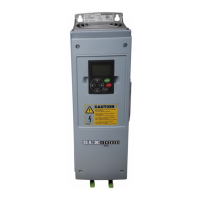
